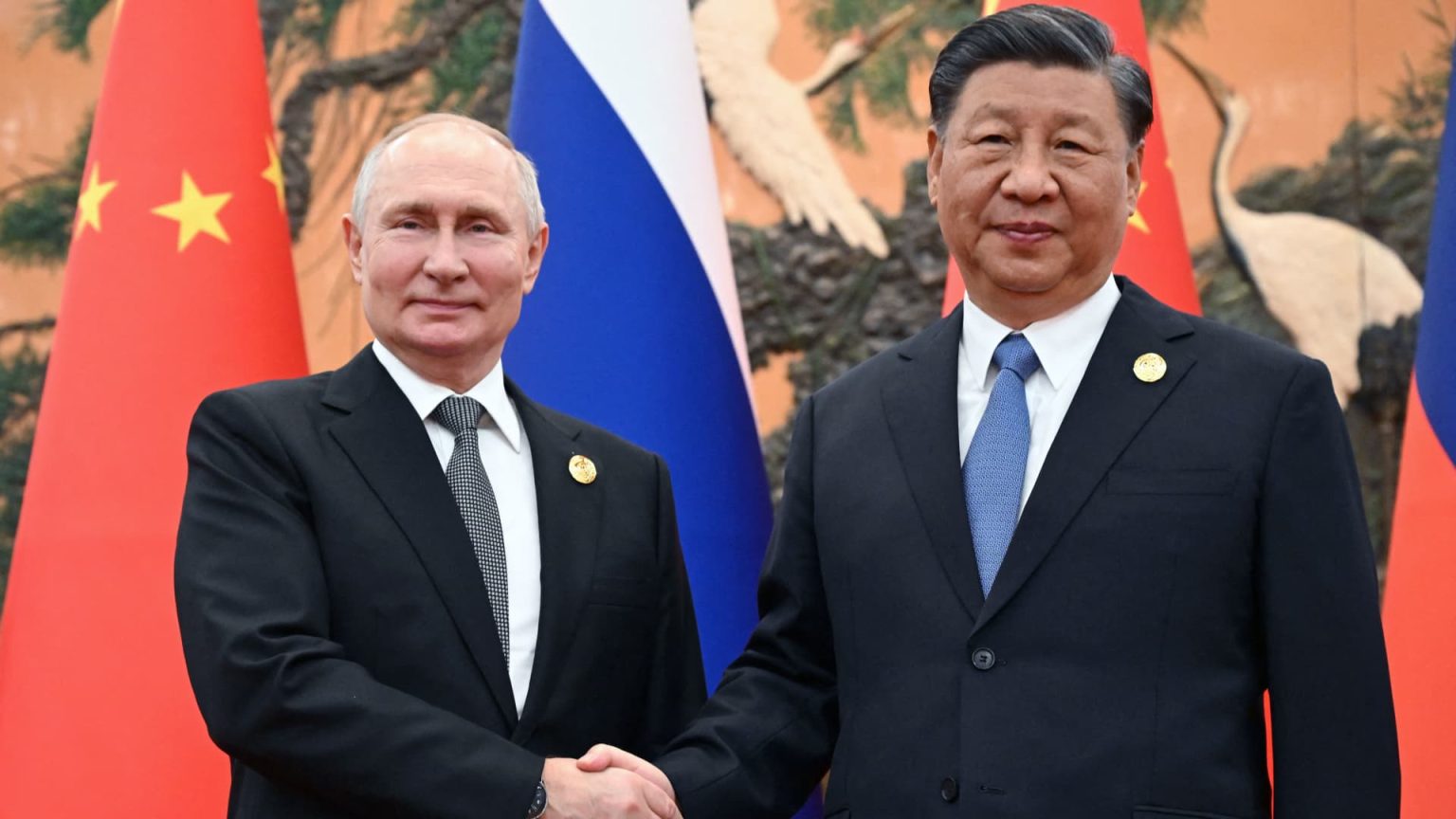Chinese leader Xi Jinping welcomed Russian President Vladimir Putin in Beijing on Thursday, highlighting the strong strategic relationship between the two countries. Putin’s visit to China, at the invitation of Xi, marks his first foreign trip since beginning his fifth term in office. The close ties between China and Russia have been emphasized as a counter to the global influence of the United States, with both countries aiming to deepen cooperation in various sectors such as high-technology, outer space, nuclear energy, artificial intelligence, and renewable energy.
Trade between China and Russia has been steadily increasing, reaching $227.8 billion in the previous year, up from $111 billion in 2019. The current bilateral trade volume is approximately $219.6 billion. China has become an important partner for Russia, particularly in light of the ongoing conflict in Ukraine and the increasing sanctions imposed by the U.S. on Moscow. The two countries have reaffirmed their commitment to expanding their economic and strategic partnership, despite international pressure.
The U.S. has raised concerns about China’s support for Russia in the war against Ukraine, urging Beijing to curtail its military aid. In response to what Washington has labeled as “unfair trade practices” by China, U.S. President Joe Biden announced new tariffs on $18 billion worth of Chinese imports, aiming to protect American industries. The mounting economic and diplomatic pressure from the U.S. and its allies could potentially push China closer to Russia, further solidifying their alliance.
During Putin’s visit to China, he is expected to meet with Chinese Premier Li Qiang and participate in a trade and investment expo in the city of Harbin. The two leaders are likely to discuss further collaboration in key areas, including technology, energy, and trade. The relationship between China and Russia has been a point of contention for the U.S., as the two countries continue to strengthen their ties in the face of international challenges. The outcome of Putin’s visit and the discussions between the two leaders could have significant implications for global geopolitics.
The close partnership between China and Russia has raised concerns among Western powers about the potential impact on global security and stability. The alliance between Beijing and Moscow has the potential to shift the balance of power in key regions, particularly in Eurasia. As the U.S. and its allies ramp up their efforts to counter the influence of China and Russia, the dynamic between the three major powers is likely to become more complex and contested. The ongoing developments in the China-Russia relationship will be closely monitored by the international community for their broader implications.
Overall, the state visit of Vladimir Putin to China underscores the deepening ties between the two countries amid increasing international pressure. The strategic partnership between China and Russia not only strengthens their economic cooperation but also has broader implications for global geopolitics. As the U.S. and its allies seek to exert influence and counter the growing partnership between Beijing and Moscow, the dynamics of the international system are facing significant challenges and uncertainties. The outcome of Putin’s visit and the future trajectory of the China-Russia relationship will be closely watched in the coming months.


